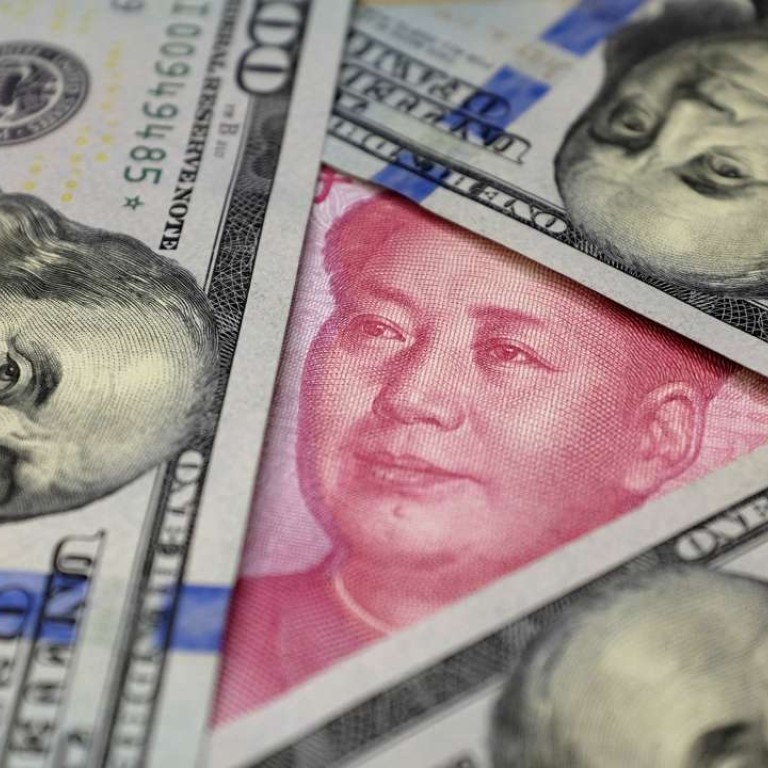
Taiwan and South Korea are closer to being named currency manipulators than China
China, South Korea and Taiwan are all on a US Treasury watch list for allegedly manipulating their currencies. As such, observers will be watching closely on April 15, when the Treasury issues its next report, the first of the Trump administration, where it may formally name one of the three a currency manipulator.
Analysts do not expect any country to meet the criteria that the Treasury uses to decide if a country should be so designated, but whether or not the Trump administration looks to change the rules after the report is published will give an indication of how it wants to proceed with its east Asian trade policy.
While campaigning for the presidency of the United States, Donald Trump said that he would declare China a currency manipulator “on day one”, but as of March 29, he has missed this self-imposed deadline by 68 days.
Out of the three countries on the watch list, Kevin Lai and Olivia Xia from Daiwa Capital Markets said in a research note that when the US treasury releases its report, South Korea and Taiwan were closer to being named currency manipulators than China, but that they felt none of the three fulfilled the designated criteria.
Nonetheless, they wrote that “precisely because the Treasury likely won’t name any economy this time around, we think there may be a temptation for Trump to consider changing the benchmarks in the future”.
Under current rule, declaring a country a currency manipulator is primarily a rhetorical device, and the only immediate consequence is the launching of a one-year negotiating period. Nonetheless, should the Trump administration change the benchmarks, this would suggest that they are taking a tougher line on China.

Criticising China was a common refrain by Trump during his campaign, one that he has maintained so far in his presidency as last month he described China as the “grand champions of currency manipulation” in an interview with Reuters.
The US Treasury’s semi-annual report on international economic and exchange rate policies will measure countries against three criteria:
●Whether they have a significant bilateral trade surplus with the US, ie larger than US$20 billion per annum;
●Whether they have a material current account surplus above 3 per cent of GDP, and;
●Whether they are engaged in persistent one-sided intervention in the foreign exchange market. including repeated purchases of foreign currency at a level equivalent to 2 per cent of GDP per annum.
Looking ahead to the April review, Lai and Xia conclude that China would fulfil the first criterion but fail to meet the other two.
It would be hard to prove that South Korea has met the third criterion in the review, and that while Taiwan met the last two criteria, since its trade surplus with the US has dropped to US$13.3 billion, it would fail to meet the first criterion.
“We see a temptation for the protectionists in the government to apply pressure to change the benchmarks. If, for example, the bar for the first criteria (sic) were lowered, then it would be much easier to put Taiwan on the list. And if the bar for the third criteria were lowered, then both China and South Korea would not be able to avoid being added either,” the Daiwa analysts wrote.
We see a temptation for the protectionists in the government to apply pressure to change the benchmarks
The implications of this are in some ways greater for Taiwan and South Korea than China. After the year of negotiations, the US Treasury can cut off financing from the Overseas Private Investment Corp – a US agency that provides funding for American businesses investing in emerging markets – for projects in the “currency manipulating” country. Since the US suspended China from this in 1989 after the crackdown on the Tiananmen protests, this would not have an impact on China.
It would however, on South Korea and Taiwan.
Geopolitically South Korea and Taiwan are also more vulnerable, as the report notes that they are close allies with the US. For that reason, the analysts are baking political dynamics into their currency forecasts.
“Korea and Taiwan are even more mindful of the possible outlines and have already allowed their currencies to appreciate substantially against the US dollar so far this year. Both the Korean won and the Taiwanese dollar should continue to outperform other Asian currencies in 2017, in our view,” wrote Lai and Xia.

